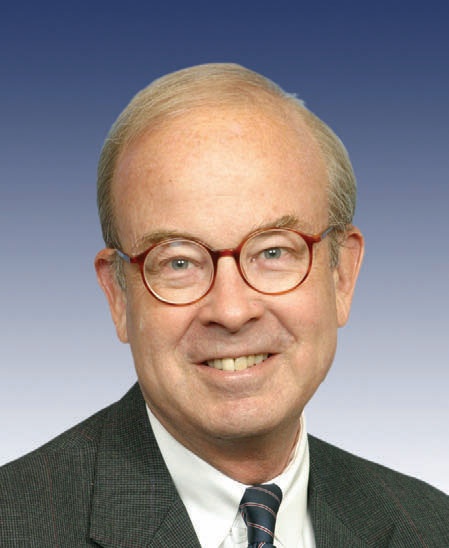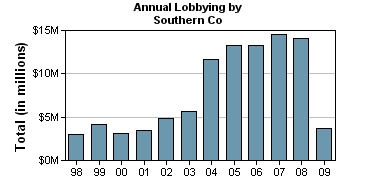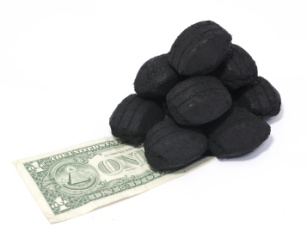electric utilities
-
So how much would a $20/ton carbon price really cost?
First I said that we shouldn’t confuse wealth transfers with economic pain. Then I said that a $20/ton carbon price works out to a 1.4 cent/kWh rate increase. Astute readers may have noticed a disconnect. (Isn’t 1.4 cents/kWh economic pain?) Which brings me to the third and final part of this little series. Carbon prices […]
-
Waxman-Markey giveaways pit consumer protection against climate protection
Waxman-Markey supposedly requires a large percent of the savings from free permits to be passed along to consumers. The intent is that they act as protection against price increases rather than a source of profits for large companies. Unfortunately, to the extent this works, it is likely to dampen the price signals that are supposed […]
-
Defending coal in climate legislation
We saw how years of accumulated habit, chummy political relationships, and a regulatory model that all-but mandates big central power plants have left coal utilities betting their futures almost entirely on “clean coal.” They’ve told their legislators that it’s the only way to go low-carbon in the South and Midwest. Their legislators, who have long […]
-
Southern Company, coal plants, and the latest gizmo
Who is behind the push for “clean coal”? Seems like it ought to be simple, but it’s not. Take a look at this list of members of the “clean coal” front group ACCCE. There are effectively three lobbies: producers, utilities, and legislators. Producers’ interest in “clean coal” is obvious: they want to sell more coal. […]
-
Straight talk with Congressman Doyle
“This is 2009. We’ve got 41 years in this deal, and we shouldn’t be so worried about the first 10 years.” — Rep. Mike Doyle (D-Pa.), Environment and Energy Daily, May 7, 2009 The time for climate action is now.wwarby via FlickrI had no plans yesterday morning as I woke up and turned on my […]
-
Why mandate renewables if we already have a cap on CO2?
A question I hear frequently (in wonk circles anyway): If the U.S. implements a declining cap on CO2, why does it also need a national Renewable Portfolio Standard? (For non-wonks, some basic background: a declining cap on CO2 emissions would, theoretically, force electric utilities to find low-carbon alternatives. An RPS would dictate that utilities generate […]
-
Can it be? Even more tidbits from the Energy Efficiency Global Forum?
Here is the third and final collection of tidbits, factoids, and insights from the Energy Efficiency Global Forum. These are drawn from the final plenary session, which was two hours long and absolutely packed with interesting speakers and info. • Nobuo Tanaka, executive director of the International Energy Agency, pointed out that efficiency improvements have […]
-
Beware utilities seeking free pollution permits
America’s electric utilities (PDF) are waging a no-holds-barred campaign to get 40% of carbon emission permits allocated free to local distribution companies and merchant coal generators. They argue that free allocation will protect consumers better than auctions and cash back. Just give us free permits, they say, and we’ll pass through the savings to our […]
-
The net’s best introduction to the smart grid
Lynne Kiesling is a senior lecturer in the Department of Economics and in the Kellogg School of Management at Northwestern University, a member of the GridWise Architecture Council, and the proprietor of the excellent blog Knowledge Problem. She has written the best general introduction to the smart grid available (and I’ve read a lot of […]







